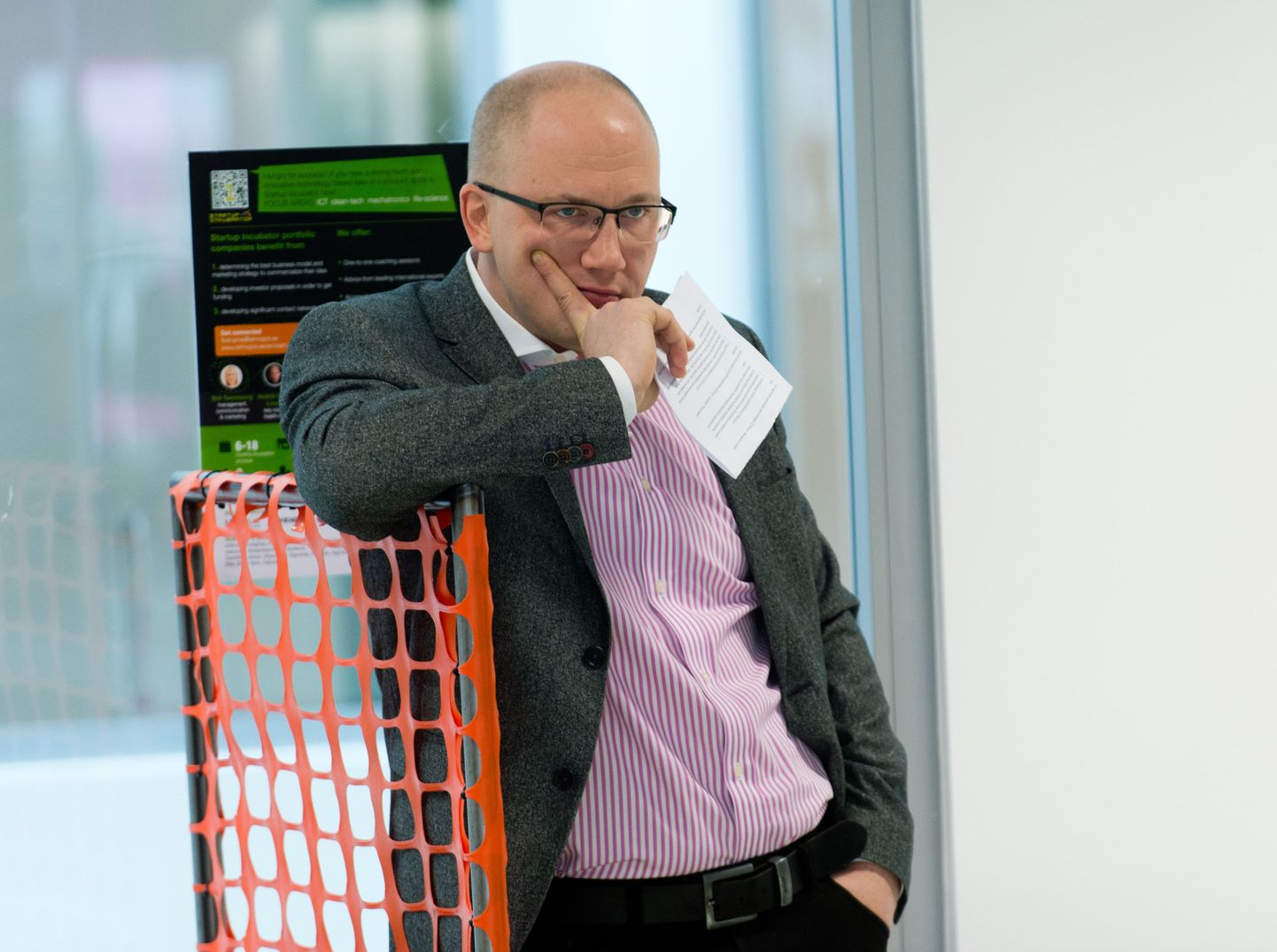
As reported by Äripäev last Wednesday, Estonia’s largest software developer Nortal tricked Road Administration into awarding it a near €6.3m IT-procurement. Yesterday, its CEO Priit Alamäe claimed it was a social experiment from the start.

As reported by Äripäev last Wednesday, Estonia’s largest software developer Nortal tricked Road Administration into awarding it a near €6.3m IT-procurement. Yesterday, its CEO Priit Alamäe claimed it was a social experiment from the start.
Namely, it was stated by Road Administration in the conditions for its procurement for software analysis, programming and maintenance, that in case the procurement succeeds, in price category the best points will go to an offer ten percent below the average. The aim was to avoid underbidding.
Thereat, Nortal entered the procurement with three bids – in addition to the parent company, their Lithuanian and Finnish subsidiaries joined in as well. The latter, however, set every offer twice or thrice as high as others. By that, they pushed up the average price and in first and second part of the procurement the Nortal parent company’s bid proved the closest below average. Meanwhile, their prices were higher than those of others, wrote Äripäev.
Competitor flabbergasted
Last week, Nortal declined to comment, citing the procurement process still underway. Yesterday, however, the company sent Postimees an opinion article by its chief Priit Alamäe in which the latter claims Nortal never wanted to win the procurement, rather it intended to draw attention to bottlenecks in the process of compiling public procurements.
«It came to where we could hold our peace no longer, and thus we decided to arrange this social experiment to draw attention to the problem,» wrote Mr Alamäe.
«We had no interest to go and win this procurement by price. Instead, we opted to make it plain how easy it is to manipulate a win at a procurement badly arranged. Among our inner circle, we decided that we would withdraw our bid before entering the contract,» he described.
The main problem, as Mr Alamäe sees it, is that under the banner of «let’s give upstarts a chance» the procurements have forfeited assessment of financial capability and essential quality, as replaced by mere comparison of CVs and hourly price asked by experts.
«What has been lost is the main goal of the procurement process – to find out which is the best company for any given job. This has been replaced by bars that everybody jumps over, and occasionally at highly incomprehensible assessment conditions,» he noted.
By now, Nortal has withdrawn its bid and the Road Administration needs to think what to do next. «First of all, we wish to thank Nortal for withdrawing their bids,» said the agency’s IT-department head Imbi Kivi-Sild. According to her, they are still analysing the situation and thinking what to do now. They do not approve the «experiment» by the software company, however.
«Such ways of «proving something» does not improve relations between entrepreneurs and the state. All this could have been done in a manner much more prudent and mutually respectful. Enterprises who themselves are referring to a situation where the lower price is not the best criterion while proving it in such a way are not open for partnership relations,» said Ms Kivi-Sild, seeking to put it diplomatically.
Priit Kongo, CEO of software development group Net Group also participating at the procurement was stunned at the behaviour of the competitor. «We have over 15 years of experience with software development and we may say that there’s nothing too wrong with public software procurements culture,» he said.
According to Mr Kongo, in comparison to the international situation it is even well with public procurements in Estonia. He said that should they win, Net Group stand ready to carry out the bid.
Ministry initiative?
According to finance ministry vice chancellor Agris Peedu, there is reason to doubt if Nortal acted in good faith. «The correct behaviour by entrepreneur who sees that public procurement’s conditions are either unfair, subject to manipulation, or disproportionate, would be to officially present their proposals or to contest the procurement documents before submitting their bid,» he said.
According to Mr Peedu, Nortal’s decision to withdraw their offer equals a situation where the winner refuses to enter into procurement contract and by law they may be demanded compensation of damage with all kinds of additional costs.
According to Mr Alamäe’s accusation, the problematic principle of «let’s give upstarts a chance» which goes against aspirations of Estonian Association of Information Technology and Telecommunications, is an initiative by economy and communication ministry.
Rasmus Ruuda, PR-chief of the latter, said the ministry cannot and must not interfere with procurements by its divisions. As to Nortal’s behaviour, he curtly commented: «It’s nice if people experiment with new options and in this we wish Nortal’s hardworking staff all good luck.»